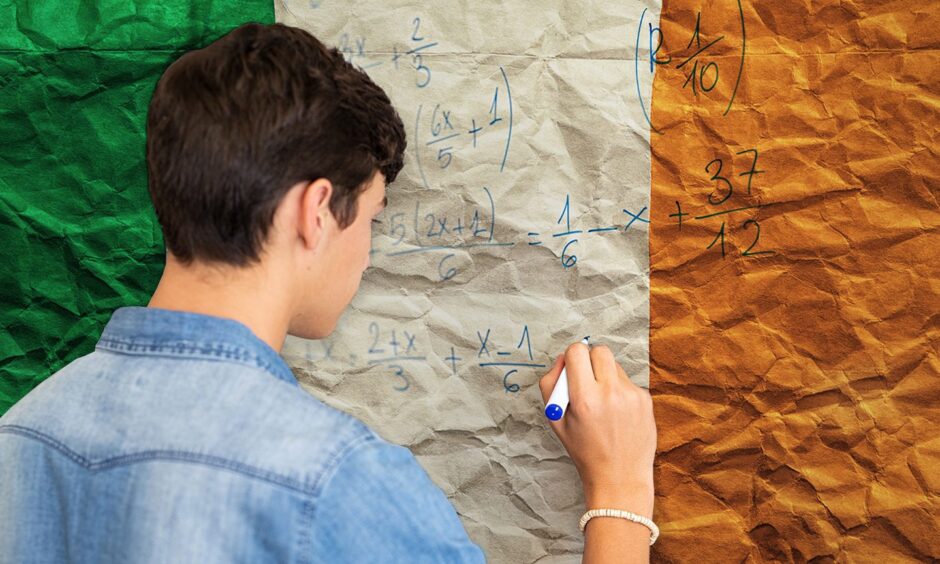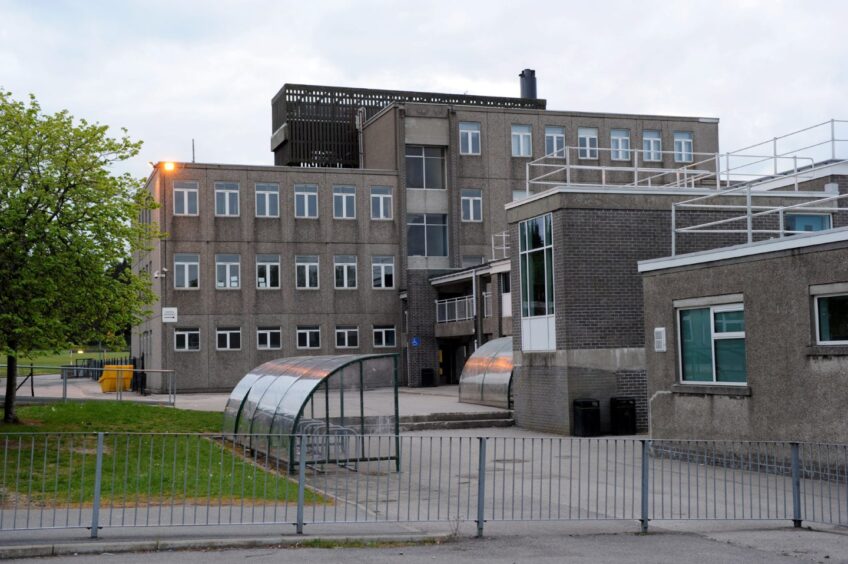
Why does the Irish education system, in a country with a similar population to Scotland, consistently produce higher achieving school pupils?
Scotland’s PISA (Programme for International Student Assessment) scores fell in each of its three categories: reading, science and maths.
In fact, the results of the latest PISA report, which was released by the OECD in December, represented the lowest or joint-lowest scores for each of the three categories since Scotland began participating in 2000.
This means Scotland has dropped from 25th to 30th place in maths and from 24th to 31st place in science, compared to the previous set of results released in 2019. Reading offers a slightly rosier picture, with Scotland remaining in 14th place.
Scottish students scored below the OECD (Organisation for Economic Cooperation and Development) average for maths and science, though above the average for reading.
PISA measures 15-year-olds’ ability to use their reading, maths and science knowledge and skills to meet real-life challenges.
The tests are taken by pupils in 81 countries and regions worldwide.
Irish education system producing globally impressive results
The decline in Scottish standards is in stark contrast to those of our Celtic neighbours, Ireland.
Irish students sit at the top of the tree in Europe for reading, and Number Two globally, behind only Singapore.
Ireland is also in the Top 10 globally in science and maths.
Little over 30 miles separate Islay in Scotland and Donegal in the Republic of Ireland.
So why are Irish pupils faring so much better at school than their Scottish counterparts?
The P&J spoke to Emer Beattie, who is originally from Mullingar an hour west of Dublin.
Having worked as a primary teacher in Ireland, she is now an artist living on the Black Isle.
Her four children all went to Fortrose Academy, with her youngest now in S5 at the school.
Keys to Irish success: More respect for teachers, less assessment
She outlined three clear areas where she reckons Ireland does things differently.
Respect for teachers. Respect for teaching as a profession. And less focus on assessment.
“Teaching is respected in Ireland,” said Emer. “Teachers are respected.
“As teachers, you are taught that you’re working on a par with doctors and lawyers.
“You’re not being paid the same, but you’re regarded with the same respect.
“That showed in the class as well. There was more respect for the teachers by both the children and the parents.
“I think that’s a huge difference between Scotland and Ireland.
“Teachers are not respected in the same way in Scotland. And therefore, very capable students don’t go into teaching.”
‘I think the whole system in Scotland has to change’
Many councils in Scotland are currently suffering an acute teacher shortage. Indeed, Aberdeenshire Council’s director of education Laurence Findlay recently admitted that the situation is “reaching crisis point”.
“I think in Scotland the whole system has to change,” said Emer.
“Look how they did it in Finland and Estonia and Denmark. In those countries, they turned things around by making education the focal point for the future.
“When you do that, you end up with highly qualified, highly intelligent teachers who will be respected.
“Lots of money and resources went into education and support for teachers, and that made it a desirable profession to go into.
“Here, it’s a job rather than a vocation.”
Parenting the Irish way: ‘Parents have a responsibility for their child’s education too’
It’s not just increased state support that is required. Parents need to look at themselves too.
Emer said Irish parents, on the whole, afford teachers a far higher level of respect.
“I see from my brothers and sisters in Ireland how they support their kids’ schools.
“Everybody supports the school in Ireland. Everybody respects the teacher.
“Here, some do, but parents don’t always agree with homework, for example.
“So they tell their kids, from P1 onwards, ‘oh if your teacher gives you homework, you don’t have to do that.’ I’d never seen that before.
“Why would you do that? Why would you (a) not spend time with your child going over what they’ve done during the day, and (b) undermine the teacher’s authority like that?
“Parents have a responsibility for their children’s education as well, but some parents here just don’t seem to see that.”
‘A taste of prosperity’: The Celtic Tiger and the Irish education system
The P&J also spoke to Aberdeen resident Ciaran Roe.
Originally from Dublin, he lives in Aberdeen with his partner and twin 15-year-old boys, who attend Hazlehead Academy.
He had an interesting theory about the effect the Celtic Tiger – the economic boom in Ireland between 1995 and 2008 – had had on Irish education.
“Kids of a certain age have had a taste of that prosperity,” said Ciaran.
“It’s almost ingrained in teenagers’ heads now: ‘I’ve got to do well, I’ve got to go to university, or get an apprenticeship, and start earning money.’
“Young people have a very different attitude to what they used to towards standard of living.
“We had a taste of the money, and suddenly we’re in a bit of a decline, the bubble burst.
“I think Scottish kids are ambitious, but because in Ireland we’ve had that taste of what life could be, kids are more driven to succeed.”
‘The Curriculum for Excellence hasn’t helped’: Unnecessary exam pressure on Scots kids
When The P&J conducted an investigation into countries outperforming Scotland in the classroom in 2021, there was one common denominator.
Many of the parents, teachers and government ministers we spoke to, from various countries, pointed to the need to learn for learning’s sake, rather than to pass exams.
This holds true for Ireland too, according to Emer.
“The Curriculum for Excellence hasn’t helped,” she said. “Kids are learning for exams and for assessments.
“For example, my son loved history but didn’t do history for his Highers. He said if he’d done history for his Highers, he’d have to learn 14 or 15 different essays and would end up hating history.
“That’s not what an education system should do. I’m not sure there’s the same love for learning here as there is in Ireland.”
‘If she’d been in Ireland, she’d have become a doctor’
She added: “There’s not the same pressure put on kids in Ireland as there is here, in terms of exams.
“In Ireland, there’s more emphasis on projects done during the year. Here, you have to secure all your Highers in the one year in order to be considered by some universities.
“In Ireland, if you don’t do well in the leaving certificate then you can repeat the year, and if you manage to get better results then the previous year’s results don’t count.”
Emer gave the example of her daughter’s friend who wanted to study medicine – “straight-A student all the way through” – who was ill on the day of her maths exam and was unable to complete the exam.
“She knew that day that she wouldn’t be able to do medicine.
“In Ireland she could just have repeated the year. Whereas her five Highers were just going to be counted from that year.
“She’s now gone on and done nursing. There’s a part of me that thinks, if she’d been in Ireland, that wouldn’t have been the case. Scotland’s lost a very good doctor there.”
Scottish PISA performance ‘shocking’
Having lived in the Highlands for 25 years and raised four kids here, she finds it sad that the Scottish education system – once the envy of the world – continues to plummet down the PISA rankings.
“I noticed in the PISA report that Scotland was halfway between Singapore at the top and Palestine at the bottom.
“What those kids are going through in Palestine, in order just to sit those tests. And we’re only halfway up the scale?
“I just think that’s shocking.
“There are a lot of fantastic young people in this country – make the most of them.”





Conversation